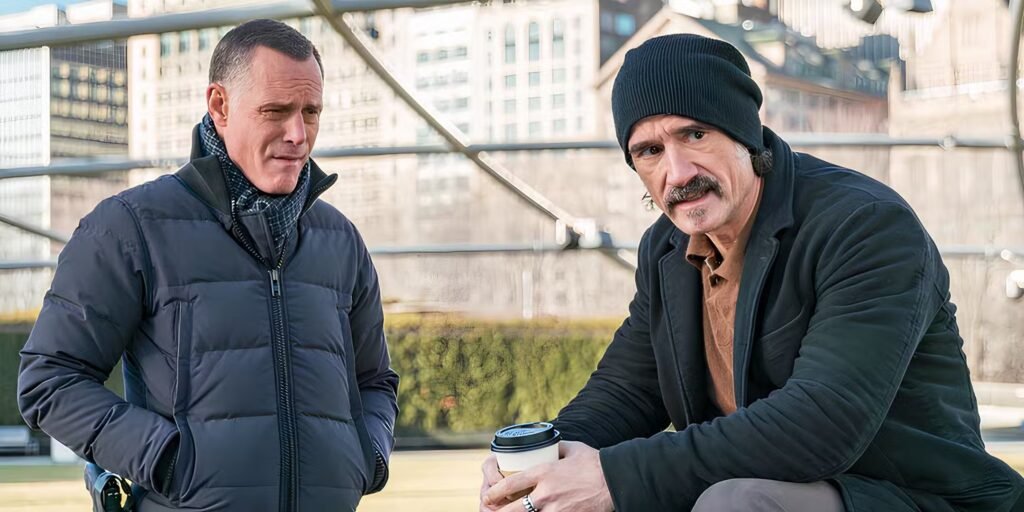In Chicago P.D., Alvin Olinsky was one of the most respected members of the Intelligence Unit. Played by Elias Koteas, he was part of the original lineup and shared a deep connection with Sergeant Hank Voight, portrayed by Jason Beghe. Both men had old-school policing styles and knew exactly how far to bend the rules to get justice. Season 12 of the series brought a tense new conflict for Voight. Deputy Chief Reid, played by Shawn Hatosy, set out to bring Voight and his team down. Reid’s determination sparked a season-long battle that ended in tragedy. In the finale, Voight sanctioned the shooting that took Reid’s life.
Throughout the season, some characters tried to talk Voight out of making extreme moves, but they failed. According to showrunner Gwen Sigan, one person might have succeeded if he were still alive — Alvin Olinsky. Speaking about the storyline, Sigan said she believes Olinsky could have been the only person to stop Voight. While Hailey Upton, played by Tracy Spiridakos, has also managed to reach Voight in the past, Sigan feels Olinsky’s bond with him was unique. Their trust and mutual understanding often allowed Olinsky to influence Voight when others could not.
Olinsky’s death in Season 5 marked a turning point for the Intelligence Unit. He had been the voice of reason and a balancing force for Voight. His ability to rationalize with Voight stemmed from years of shared experience and an unspoken loyalty. In earlier seasons, Olinsky often convinced Voight to take a step back from risky decisions. Given their close relationship, Olinsky could have approached the situation with Reid differently. His presence might have reminded Voight of long-term consequences, including the threat of Internal Affairs, the possible disbanding of Intelligence, and the risk of losing trusted officers like Kim Burgess and Dante Torres. Olinsky’s style was to work from the inside, using patience and persuasion. This approach might have allowed him to steer Voight away from ordering Reid’s death, even in the heat of the moment. His credibility with Voight was unmatched, which could have made his voice the deciding factor.
However, Sigan also hinted at another possibility. Olinsky was fiercely loyal to Voight and the unit. If the stakes were high enough, he might have sided with Voight rather than try to stop him. The war between Voight and Reid was not just personal; it was about protecting the Intelligence Unit’s survival. Faced with the threat of losing their team, Olinsky could have seen eliminating Reid as a necessary move. His loyalty to Voight and his belief in protecting their own might have outweighed any moral hesitation.
The death of a deputy chief will not go unnoticed in the next season. Chicago P.D. Season 13 is likely to explore the fallout from Voight’s actions. Questions remain about whether ASA Nina Chapman, played by Sara Bues, will continue to stand by Voight after admitting her feelings for him yet failing to stop him. With Reid gone, Voight may face investigations that could threaten his career and the unit’s future. The absence of Olinsky as a moral anchor will continue to shape Voight’s decisions. Fans are left wondering how different events might have been if Olinsky had been there.
The debate over whether Olinsky could have saved Chief Reid reflects the lasting impact of his character. Even years after his on-screen death, Olinsky remains one of the most influential figures in the Chicago P.D. universe. His dynamic with Voight was a core part of the show’s early years, and his legacy continues to affect the storylines today. As the series moves forward, the question of what Olinsky would have done serves as both a tribute to his character and a reminder of the moral struggles at the heart of Chicago P.D. Whether as a voice of reason or a loyal partner in bending the rules, Olinsky’s shadow still looms large over Voight’s choices.

